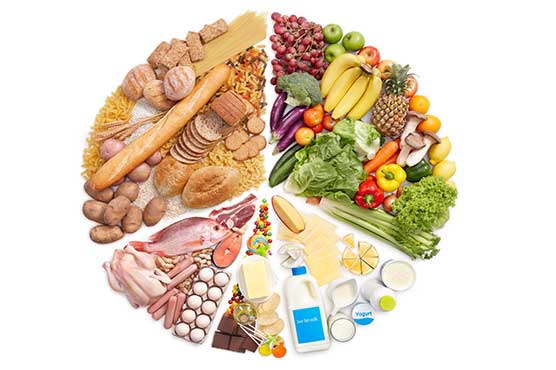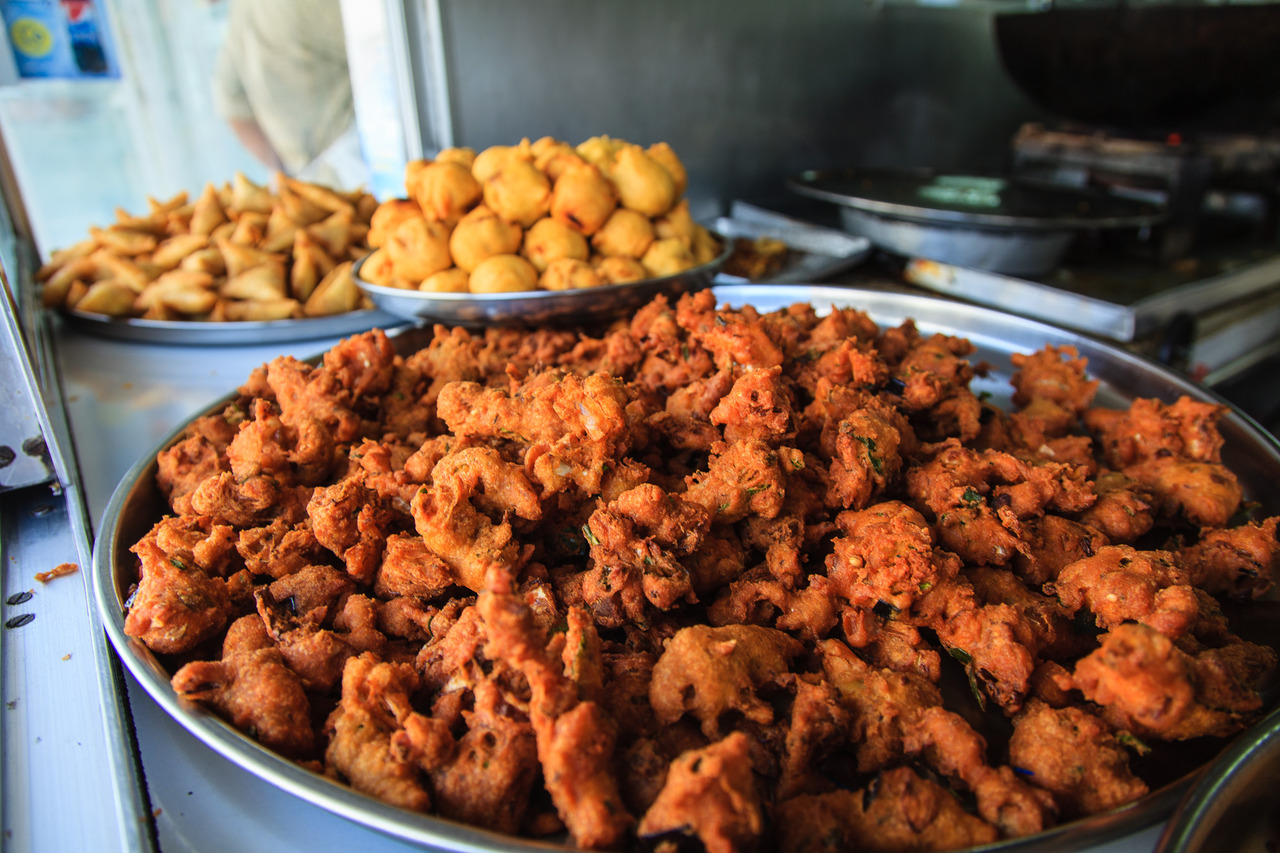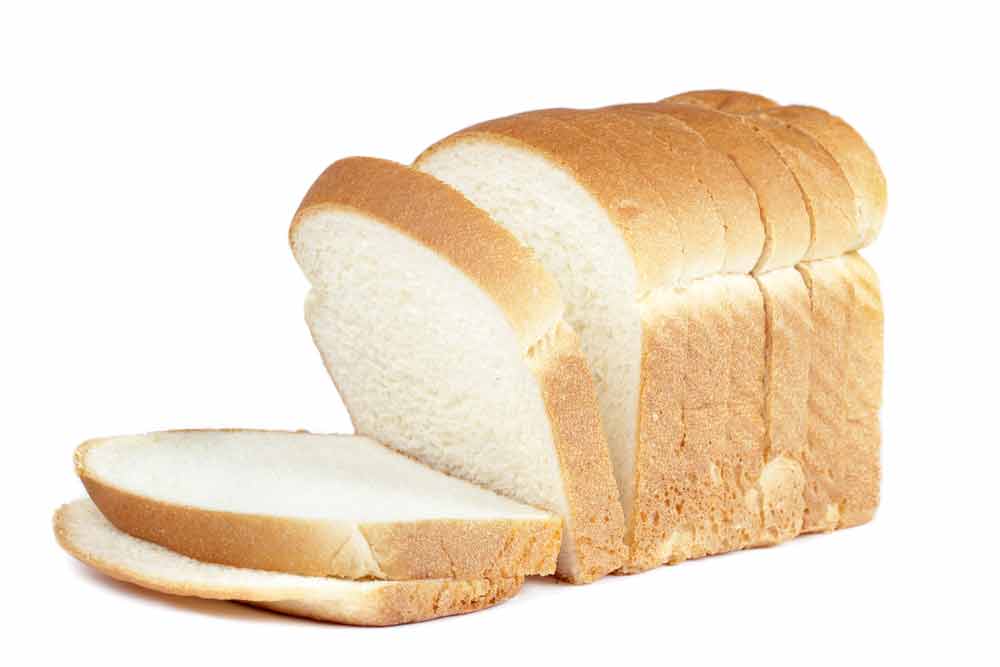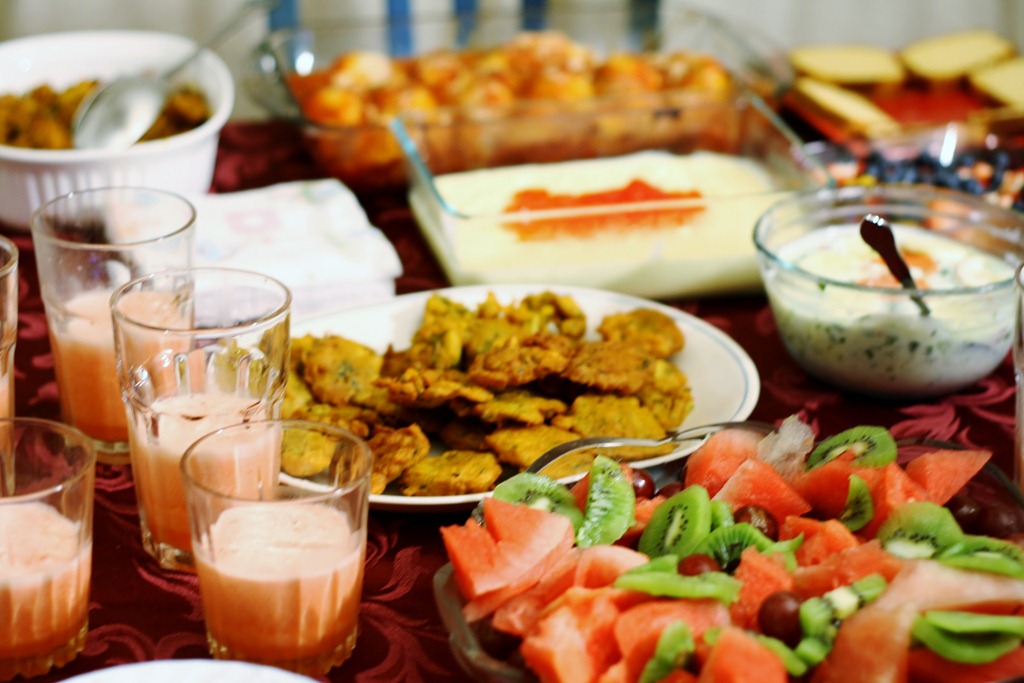Six tips for eating healthy during Ramazan

Low activity and high food intake make it easy to gain weight in Ramazan.
(Web Desk) - Several people aim to lose weight during the month of Ramazan because eating less should technically result in weight loss, right? Wrong. During Ramazan, food intake actually becomes higher for most people. Paired with low activity, it becomes very easy to gain weight.
It’s hard to resist the traditional Ramazan foods that are begging to be eaten but if you want to maintain a healthy diet, there will have to be some restrictions to follow.
1. Avoid fried foods
We know how difficult this might be considering all the samosay, pakoray and rolls laid out at the Iftar table but fried foods are really bad for health. They don’t usually have high energy levels and will cause you to feel lazy and heavy afterwards. Try replacing fried foods with healthy fats like fish, nuts, cheese and olives. Kick the fried foods and you’re already on the track to eat healthy this Ramazan!

2. Eat low-carb foods
Carbs are converted to sugar and can eventually take a toll on your body after you’re done eating them. Foods high in carbs include white rice, white bread, potatoes and pasta. Try to replace these with foods high in protein since these help you stay fuller longer. Protein rich foods include meat, eggs, fish and beans.

3. Avoid ‘white’ foods
White bread, white rice and white sugar should be strictly off limits. This is easy to follow since there are alternatives available. Try replacing white bread with multi-grain or whole wheat bread. Try to avoid brown bread since most brown breads are only dyed white breads (a hoax by companies for people trying to eat healthy). The reason for this is that white bread and white rice are made from flour stripped of necessary nutrition. Replace white sugar with brown sugar or shakkar.

4. Avoid sugary, junk and fast foods
Save them for Eid instead! If you feel like having something sweet, use real honey or natural raw cane sugar. Try to quench your sweet tooth by having healthy sweet foods like fruits (dates in particular, since it’s Ramazan), nut butters and dark chocolate. Junk foods like chips and candies should be avoided at all costs.

5. Choose food options that release energy slowly throughout the day and over a longer period
Whole grain or whole wheat are examples of low GI (gylcemic index) carbs. All proteins are also examples of low GI foods as well. Try to eat more eggs, chicken, meat, yoghurt, beans, fruits, vegetables and soy. Replace cornflakes with whole wheat porridge and try to avoid parathas as Sehri. Instead, try multigrain bread.

6. Don’t overeat at Iftar
We know how tempting it is to stuff yourself with food after a long day of eating nothing but try to eat in small, controlled portions from Sehri to Iftari. Start with some water and a few dates and then some soup, salad or fruits, slowly followed up a well-balanced protein rich meal. This month is all about self-control so try to exhibit some at Iftar too.

Try to adopt these eating habits and encourage your friends and family to follow them too; it becomes easier when you have someone to motivate you not to touch the tempting fried and sugary foods. You will feel good about yourself later.

